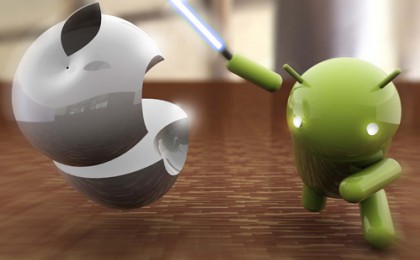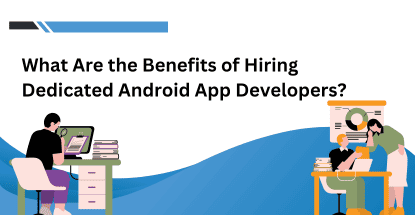Apple does not like Android. That should be pretty clear to everyone by now. Although the Google OS was in development before the iPhone, former CEO Steve Jobs was convinced that Android had “ripped off” the iPhone, and that the release of the first iPhone in 2007 had had a major impact on the subsequent development of Android.
Jobs promised to go “thermonuclear” on Android, using everything at his disposal to destroy the operating system. Even if he had to spend every last penny that Apple had accumulated to complete this task he would do so. But what could possibly make him hate the competition so much?
The source of Jobs’ anger came from the release of Microsoft Windows in the 1980s, which he felt was a direct rip off of Apple’s own graphical operating system. The emergence of Windows hurt Apple hard and almost drove it to bankruptcy and Jobs was determined to never make the same mistake again.
It is easy to see why Apple may be annoyed with Samsung’s TouchWiz, which does bear a striking resemblance to iOS in many areas, but recently Apple has been moving its war away from Android supporters such as Samsung, Motorola and HTC, and has started to face Google head on. Attacking the source of its grievance is something that Apple has until now avoided doing, as Apple has relied on a number of Google services with its products.
It is clear from iOS 6 and the upcoming iPhone 5 however, that Apple is attempting to cut its ties with Google completely. It has already removed Google Maps as the basis for the iOS Maps app (and replaced the mapping data with TomTom and, ironically, Bing) and has also announced that it will not renew its YouTube licensing agreement with Google. Until now, all iPhones have come with a YouTube app pre-installed, but this will no longer be the case. Google is preparing a new app to submit to the App Store, but if this is not approved then iPhone users will be forced to watch YouTube videos through Safari.
Google was keen to develop its own mobile operating system primarily so that it could control mobile advertising. Google generates virtually all of its revenue from online adverts, and as more and more people use smartphones to connect online it was common sense for Google to move into this market. To date however, Google generates more advertising revenue from iPhone users than it does from Android users, suggesting that Android may be more trouble than it is worth.
Apple’s new Maps app has a number of interesting features, including the 3D flyover mode. Google has developed its own 3D maps, but these do not seem to be as high quality as Apple’s in a side by side comparison. In the process however, Apple has lost some of Google’s unique mapping features, including Street View and public transport information. For some people this is no big deal, but for others it may represent a slightly worse user experience.
Likewise, having to load a browser and navigate to YouTube is not quite as user friendly as simply loading a YouTube app from the homescreen. Whether Apple would like to admit it or not, YouTube has become a big part of many peoples’ lives and support for the online video streaming service is almost essential for any modern smartphone.
It could be said that the introduction of Siri on the iPhone 4S was also an attempt to undermine Google, by providing a new method to discover information that didn’t involve a desktop search engine. At present, Google still remains one of the main sources of information behind Siri, but this could be very easy for Apple to change over time.
It is hard to envision Apple completely barring all Google services from iOS, but they could potentially make it as difficult as possible for Google to make any money from iPhone users – and in the process undermine the user experience for iOS. It all boils down to which is more important to Apple: its loyal customer base, or its hatred of Android.
With many Google services, including Search, Maps, YouTube and others, taking a central role in many peoples’ online lives today, it would be somewhat foolhardy for Apple to try and cut Google out from iOS completely. While it may make a slight dent in Google’s advertising and licensing revenues, it would also diminish the user experience for a lot of iPhone and iPad users, and ultimately hurt Apple’s sales figures in the long run.
If there is one thing that can be extrapolated from Apple’s refusal to include Adobe Flash support on iOS it is that Apple seems to have a knack of turning its back on popular services and platforms without also turning away customers. Millions of iPhone users adapted to an online life without Flash, perhaps they will do the same for Google? And if Apple is able to provide a better service with Siri and its own Maps app, why shouldn’t they?
Each iPhone launch has become more successful than the last, and this trend shows no sign of changing anytime soon. The next iPhone is expected to be unveiled to the world on September 12th and on sale the following week.
Simon writes for Best Mobile Contracts, the UK's most popular phone comparison website.

8 Comments
Leave a Reply
Cancel reply
Leave a Reply
This site uses Akismet to reduce spam. Learn how your comment data is processed.
























































































































































































Natalie
August 22, 2012 at 3:35 am
Both phones have a place in the market, and both phones are here to stay, with new models coming out daily. Is one truly better than another? I don’t think so – they’re just two phones, serving different segments of the same market.
TracyAnn0312
August 22, 2012 at 7:58 am
I don’t think so. Apple will do their best in order for them not to stay defeated. I think that we must just take a look at the battle before we can say who really defeat.
Cristian Stan
August 22, 2012 at 8:31 am
Hey Simon. Your question never crossed my mind until I’ve read this post. Iphone is too popular to “die”, I doubt people would lose interest on it.
Sarah Reece
August 23, 2012 at 11:08 am
Apple’s demand in the market is so huge and is fully understandable. It will do everything in its power to stay ahead of Google, and going by the past experiences it has the capacity to battle it out really well. Unless Apple really screws up the next iPhone (which doesn’t look possible at the moment), the euphoria surrounding iPhone is not going to die.
Abia
August 28, 2012 at 7:22 am
To some extent I agree to Sarah Reece, but now days we can see Google Android, Samsung Galaxy, Windows Phone are becoming big competitors for Apple Inc. Recently Apple Inc. have success in charging Samsung Galaxy with Dollar 1 Billion in Patent Section. It seems to be painful for me though.
Samsung said that Samsung Company have been followed many times in past, and I think Apple Inc. should not charge Samsung in such way. It is not necessary that Only Apple Inc have the same idea, each and every human being is formed with the soil and have almost the common thinkings.
Nishadha
September 3, 2012 at 10:40 am
This approach is always a risk but if it comes off it can be very beneficial. I guess it was somewhat easy to ask users to ditch flash because it had its problems and the alternatives were adequate.
Sam
September 24, 2012 at 3:18 pm
Todays winner can be tomorrows looser.
Look at Nokia. It was yesterdays winner and now it’s strugling to survive! It’s hard to predict the future and at this moment it looks like they can’t loose…
Actually it’s because of the iPod’s and iPhone’s that Apple survived in the first place 🙂
Melanie Anderson
October 3, 2012 at 6:47 am
I was trying to search for a solution on how to fix my newly bought television when I saw your post. I’ve thoroughly read it since I became so curious about the matter. Great post and I really like it. I hope you’d keep on posting more related articles about this. 😉